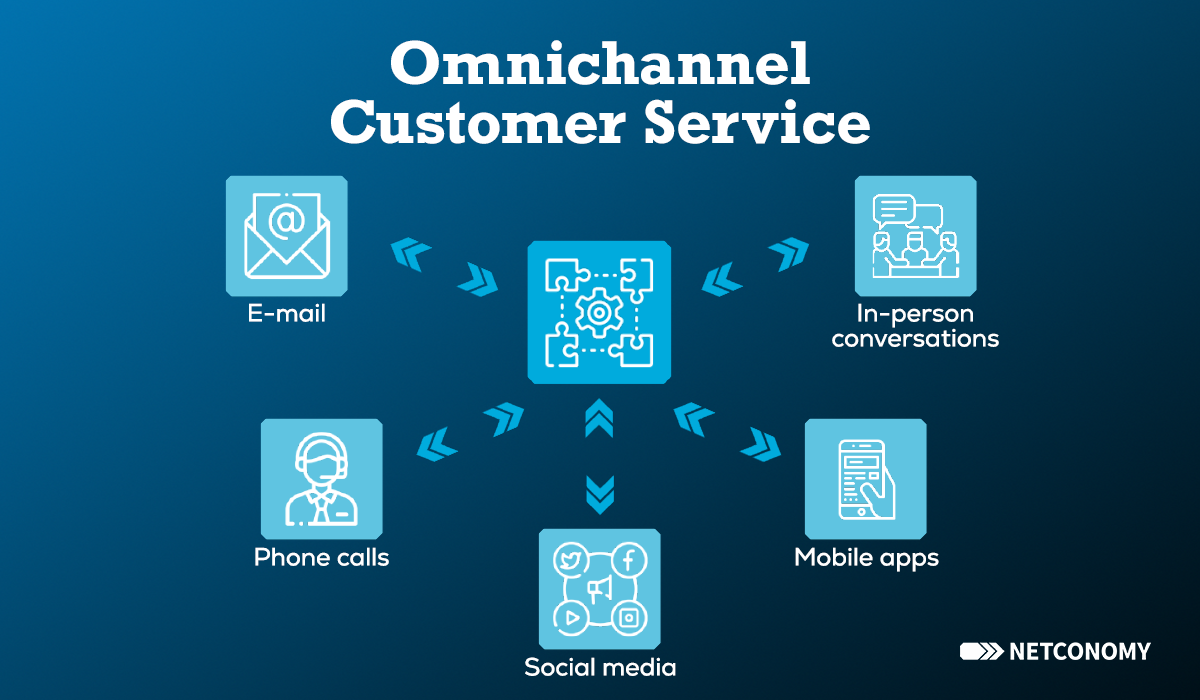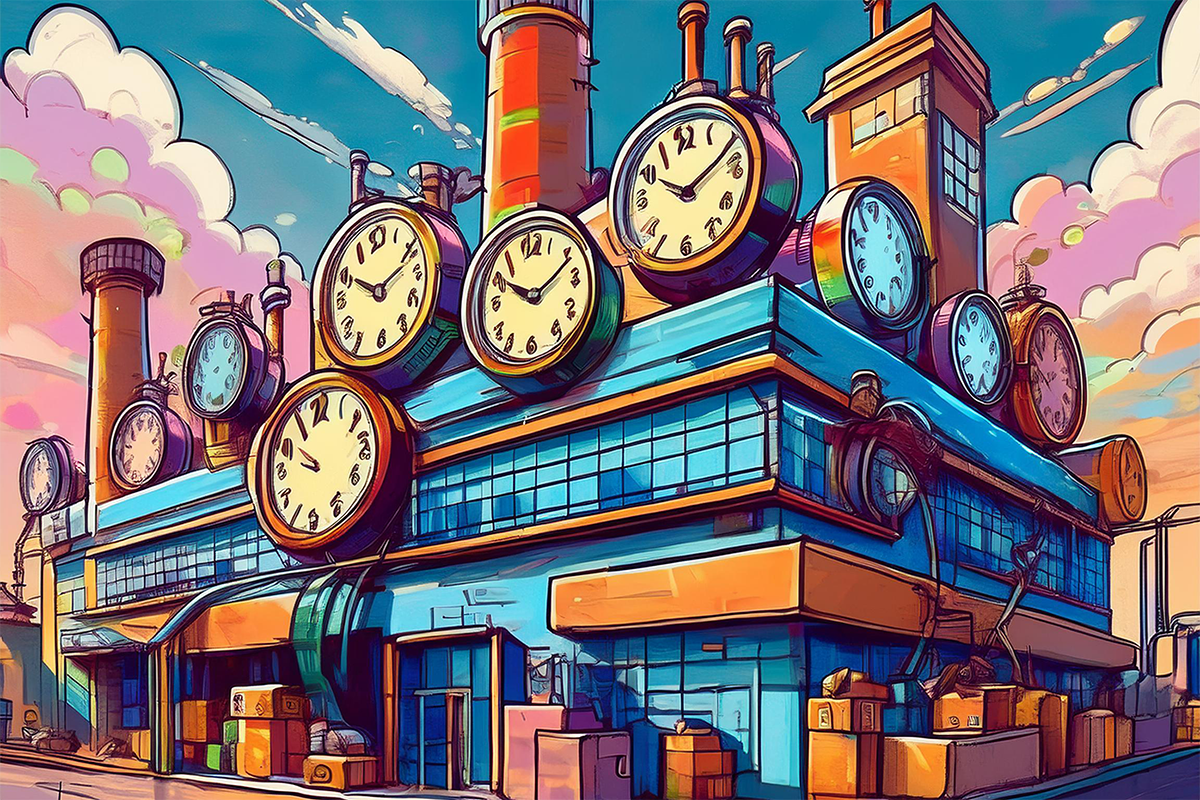
Three Key Customer Service Challenges for Manufacturers (and How to Solve them with Omnichannel Customer Service)

For manufacturers to win in the market, they need to offer much more than a superior product. With so much competition, modern B2B customers expect manufacturers to also provide exceptional service and support. And these new expectations came with fresh challenges manufacturers have been struggling to tackle.
Three main customer service challenges manufacturers have are:
- fragmented customer communication
- complex customer support cases
- managing high customer expectations
Many manufacturers have tried adopting “newer” multichannel customer support strategies to address their new challenges. However, these approaches failed to fully address their depth and breadth, resulting in disappointed customers. Fragmented systems and siloed data are present even in multichannel setups, limiting the effectiveness of any customer service efforts.
On the other hand, Omnichannel customer service is just what manufacturers need: a transformative approach that ties together all customer communication into one cohesive solution.
Omnichannel customer service is perfect for manufacturing as it:
- unifies customer communications channels in a single point accessible to all relevant teams
- supports and integrates advanced technologies such as Internet of Things (IoT) and AI
In doing so, this comprehensive approach allows manufacturers to provide consistent, proactive, and personalized support.
In this article, we’ll outline how omnichannel customer service addresses the three main customer service challenges manufacturers face and positions them to thrive in an increasingly competitive market. By the end of the article, you’ll realize that omnichannel customer service is not optional but necessary for sustained success in the manufacturing industry.
Let’s dive right into the challenges and how omnichannel customer service can help you solve each one.
Challenge 1: Fragmented Customer Communication

Manufacturing companies often form deep, long-lasting relationships with their customers. As time goes by, people from different departments on both sides develop their preferred communication channels and ways of working, inevitably leading to data silos and fragmented communication.
For example, your sales might prefer emails to discuss new products, while your customer service team uses phone calls and their troubleshooting platform to resolve issues. Meanwhile, field support technicians find it easiest to communicate through a mobile app to schedule maintenance visits.
This fragmented approach can result in delayed responses, miscommunication, and a lack of a joint understanding of the customer’s overall experience. Consequently, your company can’t provide the proper quality of service, straining the relationship with your customer. For companies in the manufacturing industry that deal with high-value contracts and long-term relationships, these issues can result in significant losses in revenue and damaged reputations.
Omnichannel customer service integrates all communication channels – email, phone, social media, mobile apps, and in-person interactions – into a unified platform. As a result, your customer service people can see the transcripts of sales calls, and they won’t be confused when the customer mentions an extended guarantee period the salespeople threw in to seal the deal.

This integration ensures that customers receive consistent information regardless of the channel they use, and manufacturers can maintain a cohesive brand voice across all touchpoints.
The omnichannel approach to customer service not only improves communication efficiency but also enhances customer trust and satisfaction.
Challenge 2: Complex Product Support and Troubleshooting

Manufacturers often deal with complex machinery and equipment. As a result, their customer service teams face challenging issues that require detailed support and troubleshooting. In many situations, they also need input from various people across different departments.
Traditional customer service solutions struggle with these cases for two reasons:
- they are unable to quickly provide the depth of information and resources that service people need
- they lack the capability to successfully handle the participation of a large number of people in the process
This status quo often leads to prolonged downtimes and frustrated customers. A situation that is particularly problematic when dealing with B2B customers who depend on their machinery working for operational efficiency.
Omnichannel strategies allow manufacturers to offer comprehensive support by integrating advanced technologies such as IoT or AI. These technologies can provide real-time data and remote assistance, accessible through a unified platform.
For example, an AI-powered customer service solution can quickly provide agents with the correct product information or answer a simple inquiry. As a result, your people are free to deal with complex cases that bring more value to the company.
On the other hand, a manufacturing customer service agent can use IoT data collected from equipment to successfully resolve potential issues before they escalate without involving your technical department.
Together, these advanced solutions allow customer service agents to focus on activities that bring value to manufacturers and create those long-lasting relationships we keep focusing on.
Challenge 3: Managing Customer Expectations and Feedback

We have already touched on the fact that complex products require comprehensive support. However, even just making those products involves a maze of assembly lines, multiple component sourcing, and adherence to strict quality standards.
Together, these complexities can lead to delays or unexpected issues in production or delivery. This, in turn, can significantly impact customer satisfaction – making managing customer expectations and feedback a priority for manufacturers.
Customers rely on manufacturers for critical components, which leads to high expectations around reliability and transparency. Any deviation from the agreed timeline can seriously disrupt the customer’s production processes, leading to financial losses and a damaged reputation.
With an omnichannel approach, customer service agents can proactively address potential issues before they escalate, using real-time data to inform customers about changes or delays. This proactive communication helps build trust and transparency, ensuring that customers are kept informed and can adjust their expectations accordingly.
Furthermore, this data can be used to fine-tune service offerings and manage expectations proactively. By utilizing a centralized feedback system, manufacturers can quickly address issues, communicate updates, and implement improvements based on customer insights. This centralization ensures that all customer interactions are informed by the latest data, improving overall satisfaction.
Final Thoughts on Omnichannel Customer Service in Manufacturing
Omnichannel customer service is the next logical step for manufacturers aiming to improve their customer experience and stay ahead of the competition. By integrating all communication channels into a unified platform, manufacturers can ensure consistent, clear, and proactive interactions that build customer trust and satisfaction.
The ability to handle complex product support with advanced technologies such as AI and IoT, coupled with the real-time management of customer expectations, positions manufacturers to meet and exceed the high standards demanded by their clients.
As a result, manufacturers not only protect their revenue and reputation but also position themselves as industry leaders in customer service excellence.
Frequently Asked Questions about Omnichannel Customer Service in Manufacturing
1. What is the difference between omnichannel and multichannel customer service?
Both multichannel and omnichannel customer service provide customers with multiple touchpoints they can use to get in touch with the company. However, omnichannel customer service ties all of these channels into a single point, avoiding the creation of data silos, thus lowering the risks of communication gaps.
2. What is the key benefit of an omnichannel customer service solution for manufacturers?
The key benefit of omnichannel customer service for manufacturers is the ability to improve customer satisfaction by allowing them to engage through their preferred channels. This way, you tailor the communication to their specific needs while providing your agents with a comprehensive 360 view of the customer.
3. What is the first step manufacturers should take when they decide to adopt an omnichannel customer service solution?
The first step manufacturers should take when adopting an omnichannel customer service solution is to map out their entire customer and service journey in detail. This process should encompass both internal systems and external communications channels, and as a result, you will be able to identify low-hanging fruits and potential complexities.
Authors and Contributors

Manuela Fritzl | Experience Management Consulting Lead







